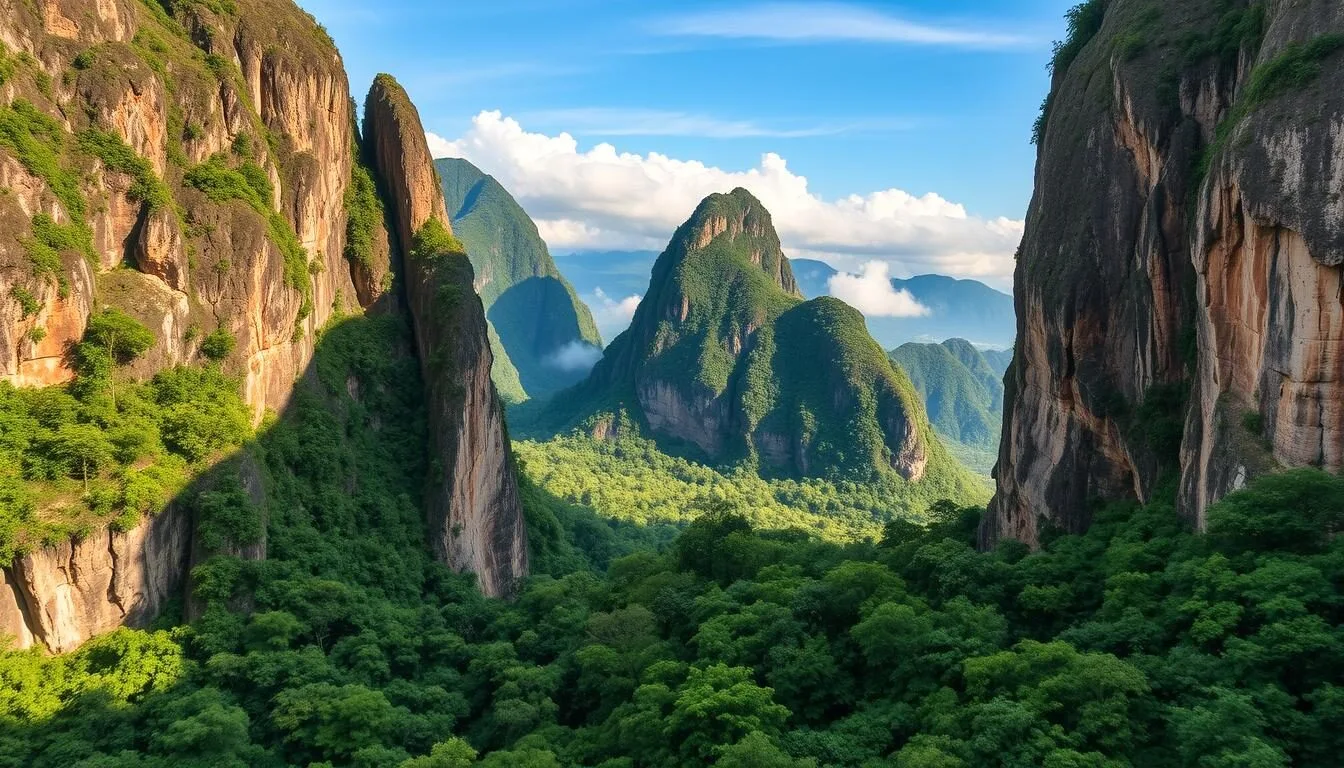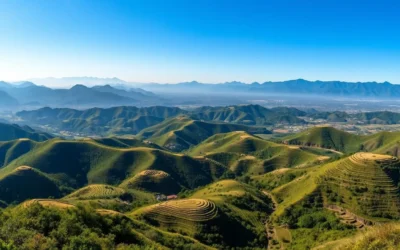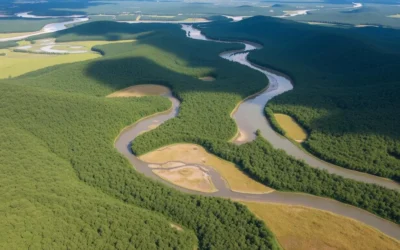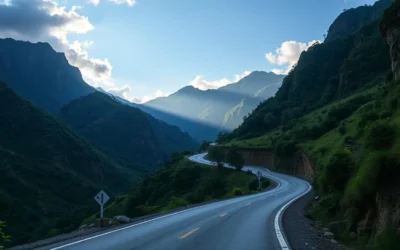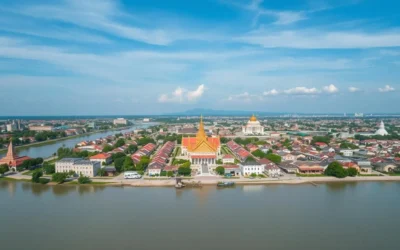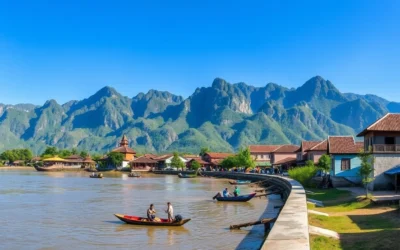Did you know that Phou Hin Poun National Protected Area shelters over 100 limestone caves, including Kong Lor Cave, Southeast Asia’s longest navigable underground river cave stretching 7.5 kilometers through a mountain? This karst paradise in central Laos remains one of Southeast Asia’s most spectacular yet least-visited natural wonders, offering adventurous travelers a rare glimpse into pristine ecosystems virtually unchanged for millennia.
Overview of Phou Hin Poun National Protected Area
Phou Hin Poun National Protected Area, also known locally as “Khammouane Limestone,” encompasses approximately 2,300 square kilometers of breathtaking karst landscapes in Khammouane Province, central Laos. This protected wilderness is characterized by towering limestone cliffs, hidden valleys, and an extensive network of caves carved by rivers over millions of years.
The area’s dramatic topography features rugged limestone formations rising abruptly from forested valleys, creating a landscape that seems almost otherworldly. Dense forests blanket the valleys and slopes, providing habitat for a remarkable diversity of wildlife, including rare and endemic species that have adapted to this unique environment.
What truly sets Phou Hin Poun apart is its extraordinary cave systems. The most famous, Kong Lor Cave, allows visitors to travel by boat through a 7.5 km underground river passage with chambers reaching heights of up to 100 meters. These natural wonders, combined with the area’s rich biodiversity and cultural significance, make Phou Hin Poun a must-visit destination for nature enthusiasts and adventure seekers.
Ready to Explore This Natural Wonder?
Start planning your adventure to Phou Hin Poun National Protected Area with our trusted travel partners.
Best Time to Visit Phou Hin Poun National Protected Area
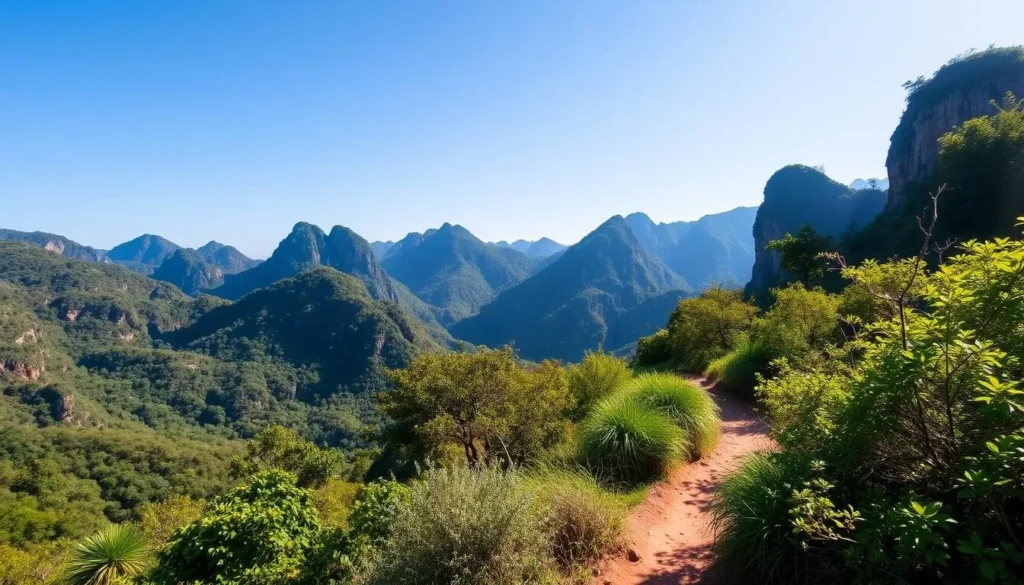
The optimal time to visit Phou Hin Poun National Protected Area is during the dry season, which typically runs from November to April. During these months, you’ll enjoy sunny days with temperatures ranging from 20°C to 30°C (68°F to 86°F), making it ideal for outdoor activities like hiking, caving, and wildlife watching.
| Season | Months | Weather | Activities | Recommendation |
| Cool Dry Season | November-February | Pleasant 20-25°C (68-77°F), minimal rain | Trekking, caving, village visits | Highly Recommended |
| Hot Dry Season | March-April | Hot 25-35°C (77-95°F), very dry | Cave exploration, swimming | Recommended |
| Rainy Season | May-October | Humid 23-30°C (73-86°F), heavy rainfall | Limited access, some roads impassable | Not Recommended |
The cool dry season (November-February) offers the most comfortable temperatures for trekking through the forests and exploring the limestone landscapes. March and April remain dry but temperatures climb significantly, sometimes reaching 35°C (95°F), making outdoor activities more challenging but still enjoyable with proper hydration and sun protection.
Avoid the rainy season (May-October) if possible, as heavy rainfall can make roads impassable and trails dangerous. Some caves may be inaccessible due to high water levels, and boat tours through Kong Lor Cave might be suspended during periods of flooding.
Plan Your Visit During the Perfect Season
Book your accommodations early for the popular dry season months.
Getting to Phou Hin Poun National Protected Area
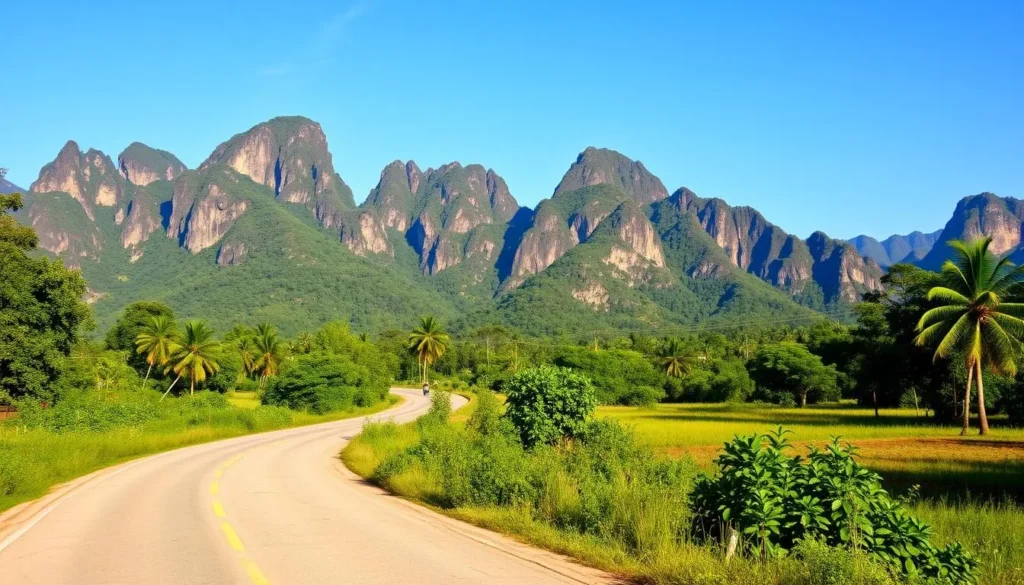
Reaching Phou Hin Poun National Protected Area requires some planning, but the journey is part of the adventure. The gateway to this natural wonder is typically through Thakhek, the capital of Khammouane Province in central Laos.
From International Destinations
Begin your journey by flying into either Vientiane (Wattay International Airport) or Luang Prabang International Airport. From there, you have several options to reach Thakhek:
- Domestic flight from Vientiane to Thakhek (limited schedule)
- VIP bus from Vientiane to Thakhek (approximately 6 hours, 350 km)
- Bus from Luang Prabang to Thakhek (approximately 8-9 hours)
From Thakhek to Phou Hin Poun
Once in Thakhek, you have several options to reach the protected area:
- Join an organized tour (most convenient option)
- Rent a motorcycle or car to explore independently (recommended for experienced drivers only)
- Take a songthaew (shared taxi) to Ban Na Hin, a common entry point to the protected area
Many travelers opt to do “The Loop,” a popular 3-4 day motorcycle circuit from Thakhek that passes through parts of Phou Hin Poun, including Kong Lor Cave. This self-guided tour allows you to explore at your own pace, though road conditions can be challenging during and immediately after the rainy season.
Need Transportation in Laos?
Rent a vehicle to explore Phou Hin Poun National Protected Area at your own pace.
Top Attractions in Phou Hin Poun National Protected Area
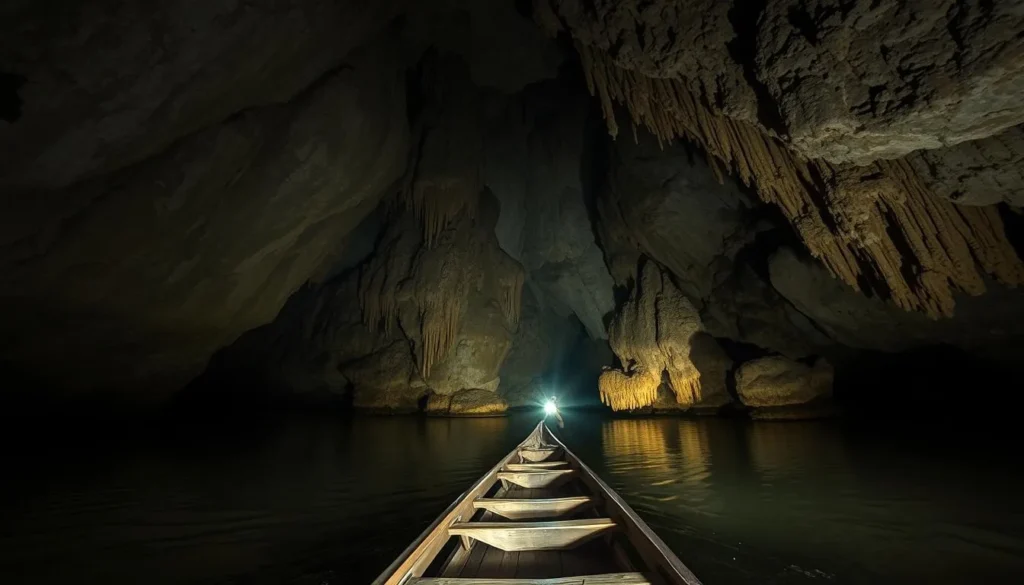
1. Kong Lor Cave
The crown jewel of Phou Hin Poun, Kong Lor Cave features a navigable 7.5 km underground river that flows through a mountain. Board a long-tail boat with a local guide to journey through one of Southeast Asia’s most spectacular cave systems, where chambers reach heights of up to 100 meters. The boat trip takes approximately 2-3 hours round trip, including stops to explore illuminated sections with impressive stalactites and stalagmites.
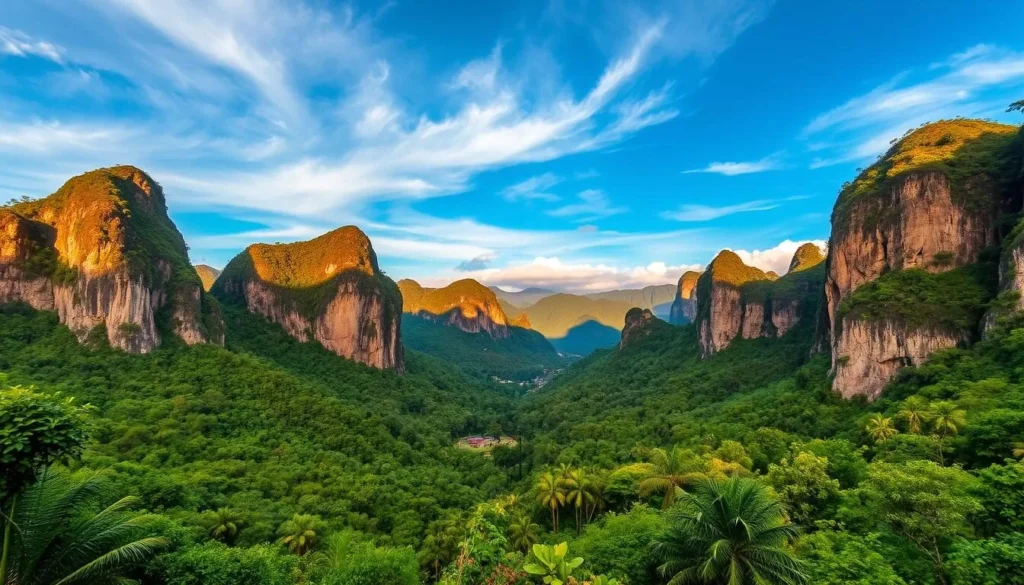
2. Karst Landscapes and Hiking Trails
The dramatic limestone karst formations of Phou Hin Poun create a landscape that seems almost otherworldly. Several hiking trails wind through forests, valleys, and alongside limestone cliffs, offering opportunities to experience the area’s natural beauty up close. Popular routes include the trails around Ban Na village and paths leading to viewpoints overlooking the karst formations.
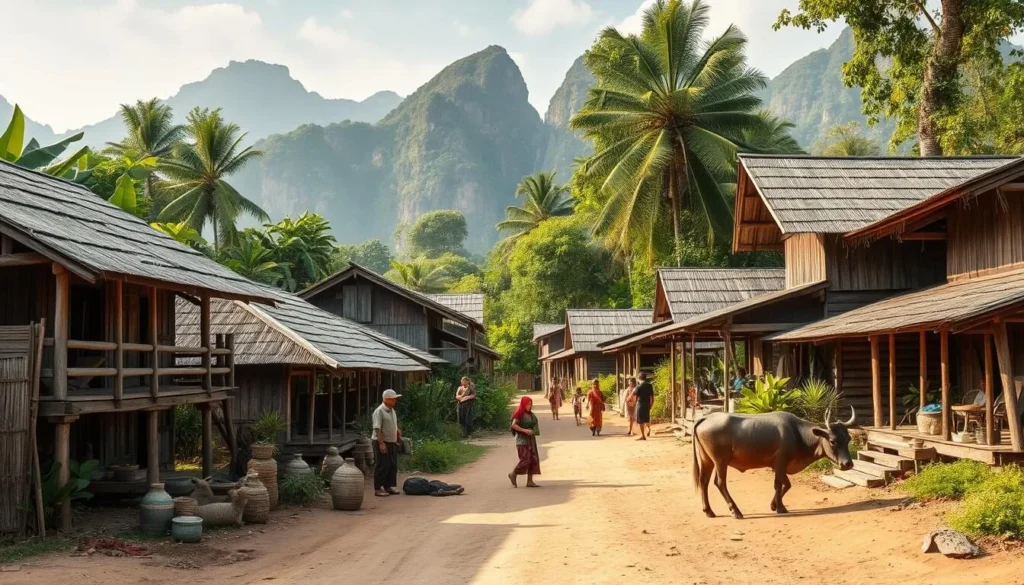
3. Traditional Villages
Several ethnic villages dot the periphery of Phou Hin Poun, offering glimpses into traditional Lao rural life. Ban Na, Ban Natan, and Ban Kong Lor are among the villages where visitors can experience local culture, observe traditional crafts, and even participate in homestay programs. Many villages serve as gateways to natural attractions and provide guides for trekking and cave exploration.
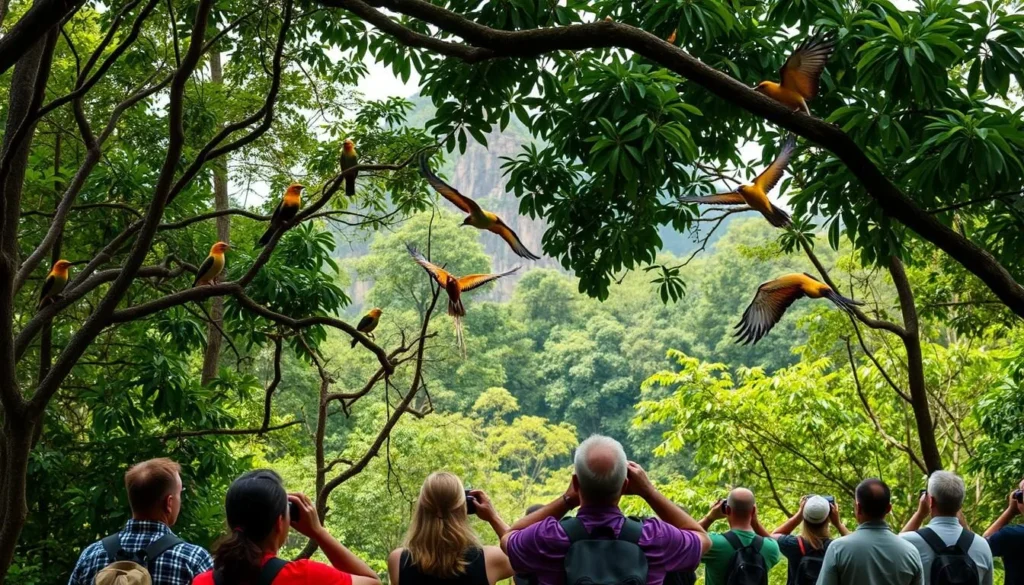
4. Wildlife Watching
Phou Hin Poun is home to an impressive diversity of wildlife, including rare and endemic species. The protected area harbors populations of langurs, macaques, gibbons, and a variety of bird species. While larger mammals like elephants and tigers still exist in remote parts of the reserve, they are rarely seen. Early morning and late afternoon offer the best opportunities for wildlife observation, particularly around water sources and along forest edges.
Kong Lor Cave Boat Tour
Experience the breathtaking 7.5 km underground river journey through massive limestone caverns with local guides.
- 2-3 hour boat journey
- Spectacular stalactites
- 100m high chambers
- Local expert guides
2-Day Trekking Adventure
Explore the stunning karst landscapes, forests, and villages on a guided overnight trek through Phou Hin Poun.
- Village homestay experience
- Traditional Lao meals
- Cultural encounters
- Moderate difficulty level
The Loop Motorcycle Tour
Experience the famous Loop circuit from Thakhek, exploring caves, villages, and landscapes at your own pace.
- 3-4 day self-guided tour
- Motorcycle rental included
- Map and route guidance
- Accommodation arrangements
Where to Stay Near Phou Hin Poun National Protected Area
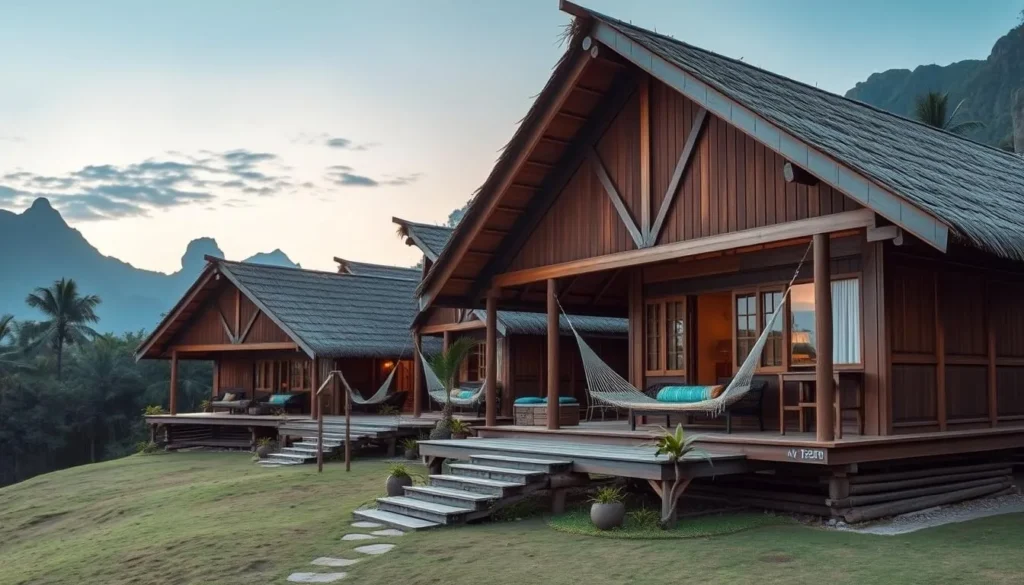
Accommodation options near Phou Hin Poun range from basic homestays to comfortable eco-lodges. Most visitors choose to stay in one of three main areas: Thakhek town, Ban Na Hin, or villages near specific attractions like Kong Lor Cave.
Thakhek
As the provincial capital, Thakhek offers the widest range of accommodation options, from budget guesthouses to mid-range hotels. Staying here provides easy access to transportation, restaurants, and tour operators, making it an ideal base for day trips into the protected area.
Ban Na Hin
This small town located on Route 8 serves as a gateway to Phou Hin Poun and is popular with travelers doing “The Loop.” Accommodation here is more limited but includes several guesthouses and small resorts catering specifically to visitors exploring the protected area.
Village Homestays
For an authentic experience, consider staying in a village homestay within or near the protected area. Villages like Ban Kong Lor, Ban Na, and Ban Natan offer basic but comfortable homestay programs where you can experience traditional Lao hospitality, sleep in a family home, and enjoy home-cooked meals.
Find Your Perfect Stay
Book accommodation near Phou Hin Poun National Protected Area to maximize your experience.
Practical Tips for Visiting Phou Hin Poun National Protected Area
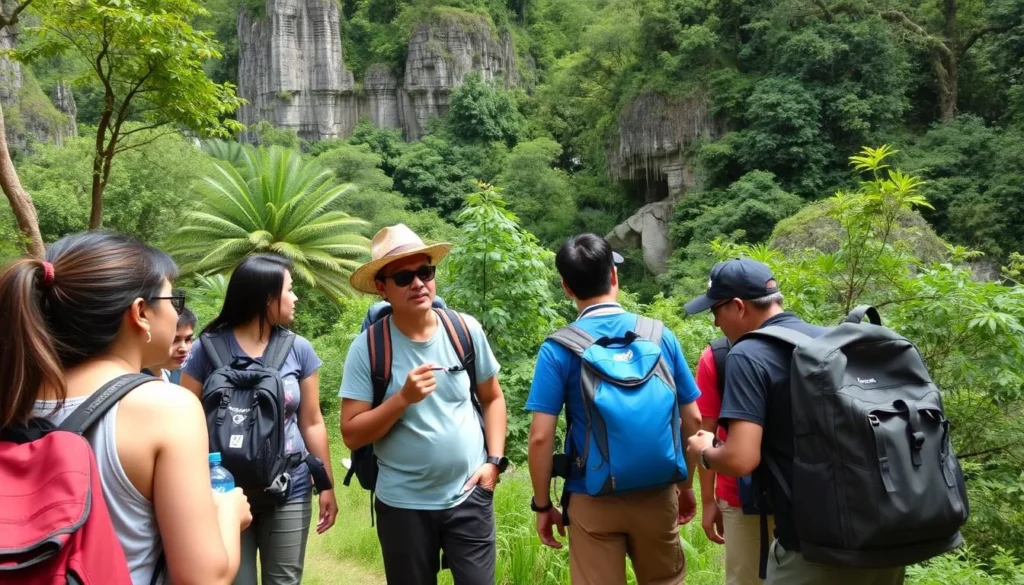
What to Bring
- Lightweight, quick-dry clothing (long sleeves and pants recommended for protection)
- Sturdy hiking shoes or sandals with good grip
- Hat, sunglasses, and sunscreen
- Insect repellent
- Headlamp or flashlight (essential for cave exploration)
- Reusable water bottle
- Basic first aid kit
- Camera (waterproof case recommended for cave visits)
- Small daypack
- Cash (ATMs are limited outside of Thakhek)
Health and Safety
The remote nature of Phou Hin Poun means visitors should take certain precautions:
- Purchase travel insurance that covers adventure activities and medical evacuation
- Bring any necessary medications as pharmacies are limited
- Drink only bottled or purified water
- Use insect repellent to prevent mosquito-borne illnesses
- Always hire local guides for trekking and caving activities
- Inform someone of your plans if exploring independently
Cultural Etiquette
When visiting villages and interacting with local communities:
- Dress modestly, covering shoulders and knees
- Remove shoes before entering homes or temples
- Ask permission before taking photos of people
- Learn basic Lao greetings (“Sabaidee” means hello)
- Respect local customs and traditions
- Support local businesses and guides

Food and Dining
Food options within the protected area are limited to village restaurants and homestay meals. These typically feature simple but delicious Lao cuisine, including sticky rice, grilled fish, laap (minced meat salad), and fresh vegetables. In Thakhek and Ban Na Hin, you’ll find a wider variety of restaurants catering to tourists, including some Western options.
During treks or day trips, pack snacks and sufficient water as facilities are minimal once you’re in the protected area. Most guided tours include meals, often featuring local specialties prepared with fresh ingredients.
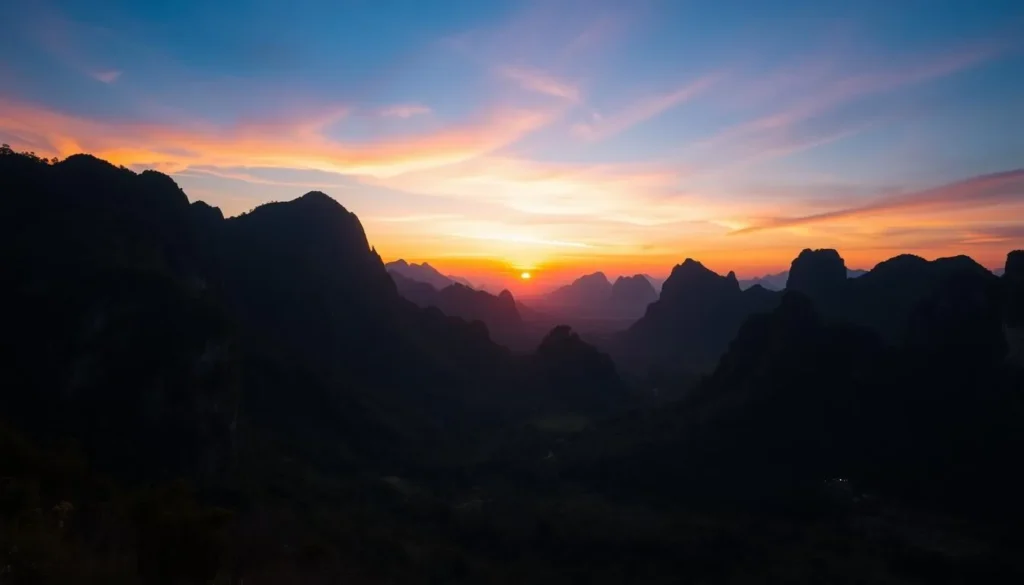
Phou Hin Poun National Protected Area offers a rare glimpse into one of Southeast Asia’s most spectacular natural landscapes. From the awe-inspiring Kong Lor Cave to the dramatic limestone karsts and rich biodiversity, this hidden gem rewards adventurous travelers with experiences that remain authentic and uncrowded.
Whether you’re navigating an underground river by boat, trekking through pristine forests, or connecting with local communities, Phou Hin Poun provides the perfect backdrop for creating lasting memories. As tourism in Laos continues to develop, now is the ideal time to discover this remarkable protected area while it still retains its unspoiled charm.
Ready to Explore Phou Hin Poun National Protected Area?
Start planning your adventure today with our trusted travel partners.
The above is subject to change.
Check back often to TRAVEL.COM for the latest travel tips and deals.
